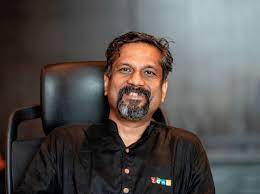Zoho Corporation, the Chennai-headquartered global technology company, today shared updates regarding its ongoing rural revival efforts and reiterated its commitment to investing in R&D and people. In the last six months, the company has opened two ‘hub’ offices in Tiruppur and Trichy; and plans to open them in Tirunelveli and Madurai districts in Tamil Nadu as well as one in Uttar Pradesh, down the line. Zoho is also expanding its current facility of Kalaivani Kalvi Maiyam, a learning centre opened during the pandemic for educating the young children from villages in and around Tenkasi.

“We are at a time of increasing economic uncertainty. In addition, powerful AI technology could transform the way we work, presenting both huge challenges and opportunities. We are busy reinventing ourselves, and our history of previous reinventions and our strong culture of R&D remain as relevant as ever during this reinvention,” said Sridhar Vembu, Co-founder and CEO, Zoho Corp.
Hub-and-spoke office model and distributed teams
In 2020, Zoho decided to follow a hub-and-spoke model of offices to cater to a distributed workforce, and as part of its ‘transnational localism’ strategy of being locally rooted, while staying globally connected. The hub offices are ones that can accommodate 1000 or more employees, while the spoke offices are smaller offices of up to 100 employees. Eventually, each hub office will have a few spoke offices associated to it for infrastructure support and team collaboration.
The company currently has five hub offices, including ones in Chennai, Tenkasi, and Renigunta, and around 30 spoke offices presently in India. Nearly 2000 employees are working out of Zoho’s hub and spoke offices in villages and Tier 2/3 towns, out of which about 1000 employees were hired locally. As part of their rural empowerment efforts, the spoke offices periodically conduct free career awareness sessions in surrounding colleges, as well as upskilling workshops and incubation programmes to identify and hire talented local youth.
“The distributed workforce model reflects the idea of distributing growth and income across Tier 2/3 communities instead of urban concentration. Many of our product development teams today sit out of these hub and spoke offices, including some teams that are involved in deep-tech R&D. The long-term vision of these efforts is to create self-sufficient and economically prosperous rural communities,” said Vembu.
Schooling initiative in Tenkasi
Kalaivani Kalvi Maiyam (KKM) currently has 130 students—across primary, middle, and high school—from surrounding villages, 19 full-time and 5 part-time teachers. A 75,000 sq ft. facility is under construction at the KKM centre in Tenkasi. This includes a building that can accommodate 750 students, with spacious classrooms dedicated to vocational studies and live workshop sessions around core engineering concepts such as two/four wheeler assembly and electrical projects. Another branch of KKM will open in Cumbam, Theni, for which work has already started.
“The driving philosophy behind the rural initiatives is to preserve and revitalise small villages and towns before they decline due to severe urban migration and lack of resources. The future generation in the rural areas needs to be enabled with the necessary skills, capabilities, and tools to nurture grassroots innovation, solve local problems, locally manufacture high-value goods, and drive community progress,” said Vembu.






